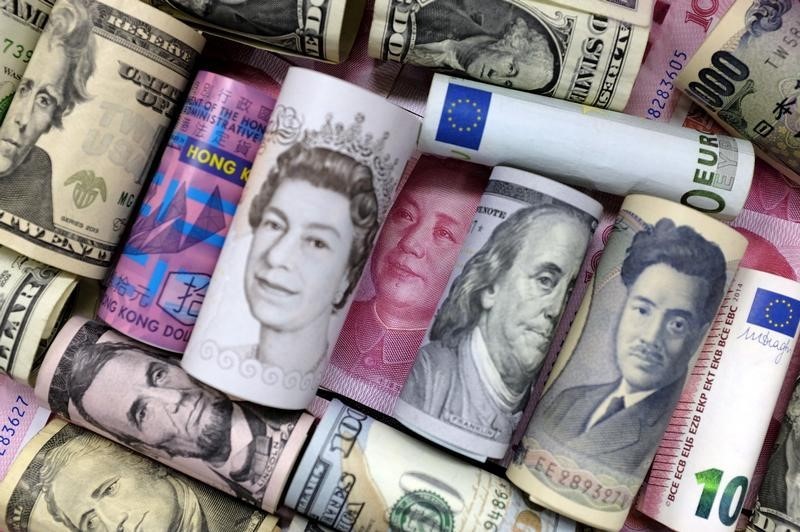Investing.com – The Japanese yen and Korean won gained a little ground against the dollar in morning trade in Asia while the Aussie dollar come under pressure after a weaker-than-expected jobs report.
Nevertheless, the dollar was supported by the U.S. Federal Reserve’s decision to raise interest rates on Wednesday. The U.S. dollar index, which measures the greenback’s strength against a basket of six major currencies, was up 0.01% to 93.57 at 10:31PM ET (02:31 AM GMT).
The rate hike announced in the U.S. was the second this year after a first hike in March. The Fed hiked rates by 25 basis points to a range of 1.75% to 2% and hinted at two more rate hikes later in the year, instead of just one it had previously suggested. Investors took both the hike and the announcement as a sign of strong confidence in the U.S. economy despite uncertainty cast by trade tensions between the U.S. and many of its partners, including China and other G7 members.
U.S. 10-year Treasury yields were also supported by the Fed's move, rising to 2.992% overnight before paring gains.
In the wake of an upbeat summit between U.S. President Donald Trump and North Korean leader Kim Jong Un, investors appeared to be shifting their focus to simmering U.S.-China trade tensions. Trump is expected to meet with his top trade advisers to decide whether to activate tariffs on billions of dollars worth of Chinese imports.
The People’s Bank of China set the reference rate of the yuan against the dollar at 6.3962 versus the previous day’s 6.4156 while the USD/CNY stayed flat at 6.3963.
Meanwhile, Australia’s dismal job report weighed on the Aussie, with AUD/USD sliding 0.30% to 0.7557. Australia released data that showed the economy added 12K jobs in May, missing expectations of 18.8K new jobs. Full-time jobs also fell by 20.6K, a big setback for the country’s economy and its currency.
Meanwhile, the Japanese yen edged up against the dollar, with USD/JPY dipping 0.03% to 110.31. Bank of Japan policymakers are set to meet on Friday and markets expect the bank to maintain its commitment to loosening monetary policy.
The South Korean won also gained against the dollar, with USD/KRW losing 0.24% to 1,083.35.
